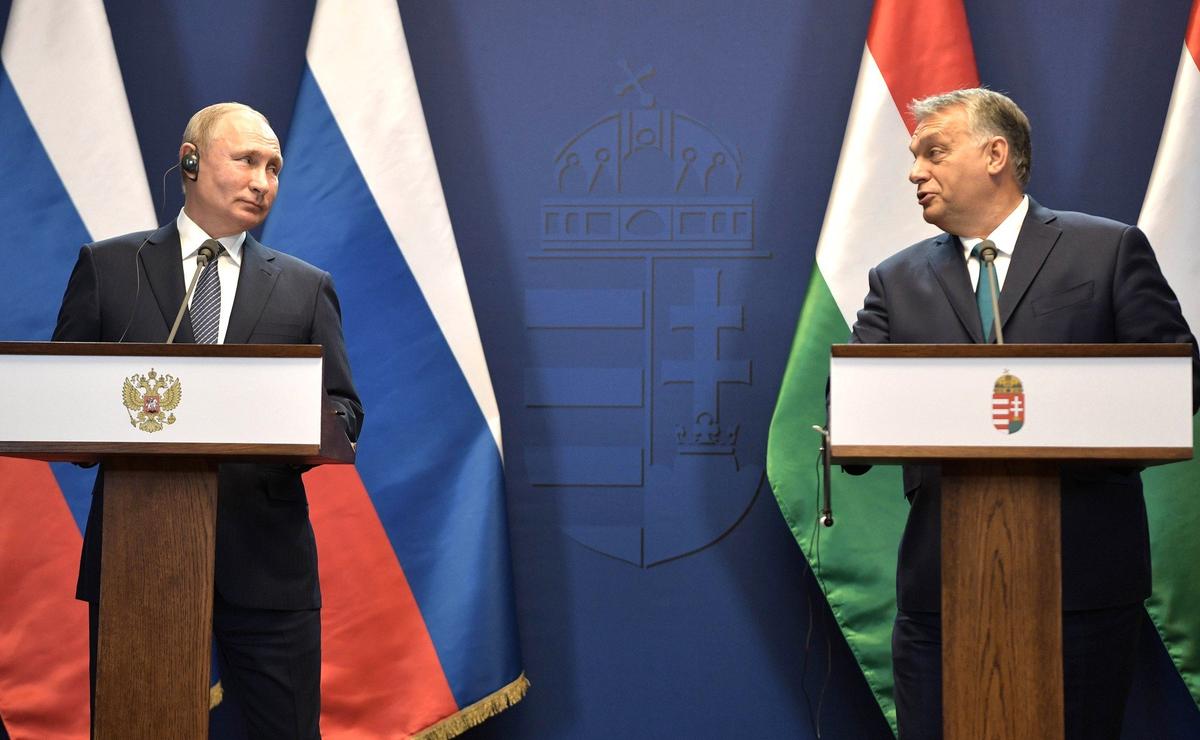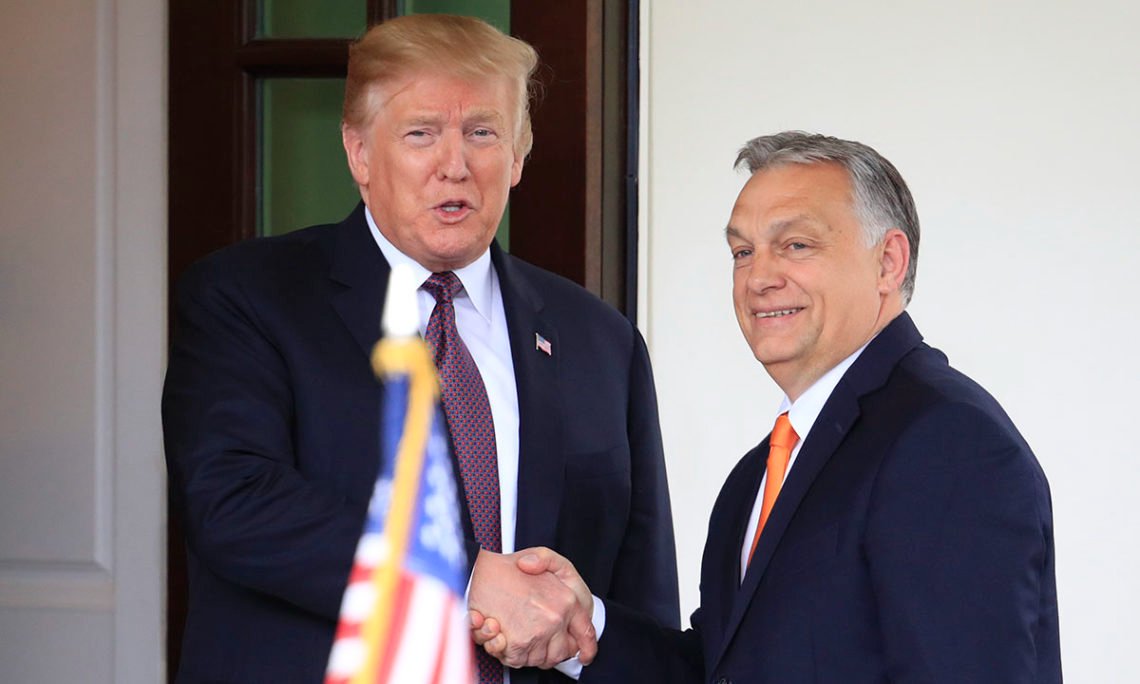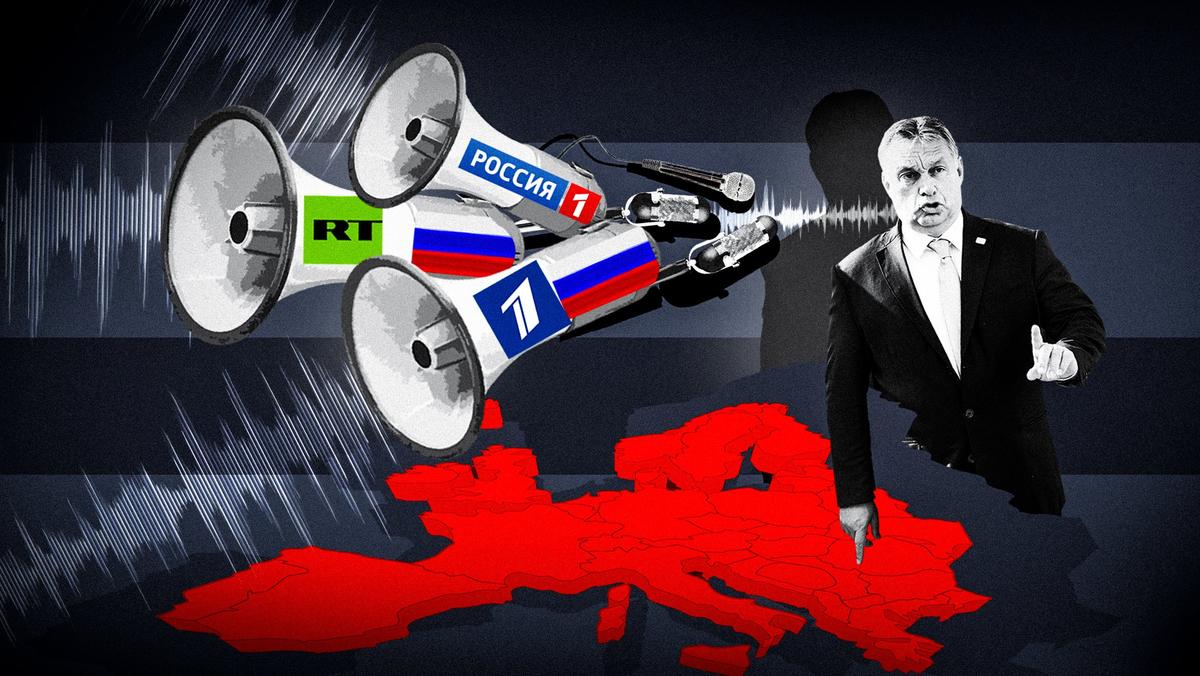This article was originally published by EUobserver.
In July 1998, Viktor Orban assumed the role of Hungary’s prime minister for the first time. Few could have predicted, 25 years ago, that Orban, once a proponent of liberal values and Hungary’s integration into the EU, would later become a prime example of authoritarian backsliding within an EU member state.
And the peculiar relationship between two authoritarian regimes — Russia and Hungary — has long been known, but after the full-scale Russian invasion of Ukraine in 2022, Orbán has increasingly been dubbed as “Putin’s ally” within the EU.
Budapest has actively hindered European efforts to impose sanctions on Russia, refrained from supplying arms to Ukraine, and even impeded transit weapons shipments through Hungarian territory.
In return, Russia continues to provide Hungary with energy resources, contribute to the construction of the new Paks-II nuclear reactor, and even supply spare parts for Budapest’s Soviet-era metro system.
However, the most significant contribution Hungary offers to Putin’s regime is symbolic.
Orban and other Hungarian politicians frequently appear on Russian TV screens and are featured prominently in state media, where they are heralded as the embodiment of the “real Europe” with a “sovereign” stance on the war in Ukraine — i.e., effectively supporting Russia.
Orban’s U-turn on Georgia
However, the relationship between Budapest and Moscow has not always been so innocent.
In 2007, when Viktor Orban and his Fidesz party were in opposition, a heated political debate erupted in Hungary regarding the fate of a monument commemorating Soviet soldiers who died in World War Two, situated in the heart of Budapest.
Orban was among those who supported the idea of relocating the monument elsewhere and even made strong statements suggesting that Hungary had “closed the door” to the Russians, the USSR, and communism, while remaining open to the West.
Despite these remarks, the Kremlin’s fierce reaction prevented the monument from being moved.
Fast forward 15 years, and Hungarian police now occasionally stand guard at the monument, protecting it from activists during significant historical events in Russia, such as 9 May (Victory Day).
In 2008, also while still in opposition, Orban strongly condemned Russian aggression against Georgia — and even advocated for the immediate invitation of Georgia and Ukraine to join NATO.
However, despite Russia’s subsequent 2014 annexation of Crimea, which did not strain the amicable relationship between Orban and Vladimir Putin, issues arose in 2016 when Russian propagandist Dmitri Kiselev referred to the Hungarian uprising of 1956 as the first “Orange Revolution” instigated by Western intelligence agencies in pro-Moscow states.
Although Fidesz, like most Hungarian parties, had previously portrayed the events of 1956 as a heroic attempt to liberate Hungary from Soviet control, Kiselev’s statement did not lead to a major diplomatic scandal.
The Russian ambassador to Hungary at the time stated that Russia’s official position on the issue remained unchanged since Putin expressed regret and a sense of “moral responsibility” in 2006 for suppressing the uprising.
Support independent journalism
Uptick in interest in Hungary
According to calculations by EUobserver, based on data from the GDELT database, up until 2022 Hungary had relatively low visibility in Russian state media, — with more attention given to right-wing or pro-Russian politicians from France, Germany, and Italy. These countries were perceived by Russians, or at least Russian broadcasters, as representing the “real” Europe, generating more interest in their affairs.
However, joint data-research conducted by Russian and Hungarian journalists revealed that in 2022, Russian state online media began to cover Hungary twice as frequently compared to the previous year. And, in the first four months of 2023, the number of mentions increased by nearly a third.
In recent weeks, the Russia Today (RT) TV channel, known for its propaganda broadcast outside of Russia, has been highlighting close to every tweet by Orban.
For instance, RT reported on Orban’s publication of a meme featuring John Travolta, seen as a criticism of the EU’s budget issues. Another news item was created by RT based on just literally two words from Orban’s tweet, where he compared George Soros’ transfer of asset management to his son with an episode from The Godfather.
However, when it comes to Russian state media targeting its domestic audience, the Hungarian government is cited to create more complex propaganda narratives.
In an effort to uncover and describe these nuances, EUobserver analysed thousands of mentions of Hungary in Russian state media over the past 500 days of the war.

Vladimir Putin and Viktor Orban. Photo by the Kremlin
Orban, the ‘last peacemaker’
The prevailing narrative in Russian state media about Hungary portrays Budapest as a peacemaker, claiming it as the sole EU member state genuinely seeking peace in Europe.
Russian propaganda constructs this image by focusing on two types of events.
Firstly, they emphasise that Hungary is the only EU country not supplying weapons to Ukraine, refuses to train Ukrainian soldiers, plus its attempts to block military and financial aid to Kyiv from the wider EU.
Secondly, there is a surge in stories presenting Budapest as a peacemaker— whenever a peace settlement plan is proposed by a party aligned with a pro-Russian position. Russian media extensively covers Orban and foreign minister Peter Szijjártó’s support for China’s plan, for instance.
However, beneath the ostensible surface of this coverage, it’s apparent that Russia’s intention is not merely to highlight Hungary’s commitment to peace, but rather to pretend that peace on Russian terms, including the annexation of parts of Ukraine, is an acceptable proposition to at least some in the West.
This propaganda helps convince Russian citizens that Moscow’s demands are reasonable, and any lack of progress in peace negotiations is primarily due to Kyiv’s stubborn stance rather than Moscow’s own actions.
Another prominent narrative spread by Russian propaganda, based on the actions and public statements of Hungarian politicians, is the perceived lack of unity among Western countries.
Interestingly, Russian state media often highlights this lack of unity when it comes to Hungary’s stance on Ukraine’s NATO membership rather than its position within the EU.
Examples include Szijjártó’s response to the Ukraine-NATO EU Commission meeting or Orban’s reaction to Jens Stoltenberg’s statement about supporting Ukraine’s NATO membership receive significant coverage.
Additionally, Russian propaganda is tracking Hungary’s efforts to impede Sweden’s accession to the alliance.
Less frequently, but still notable, is the portrayal of disunity within the EU, with Hungary openly criticising sanctions against Russia and attempting to obstruct parts of new collective EU sanction packages.
And Russian propaganda links the tensions between Brussels and Budapest over the rule of law to Hungary’s “independent” stance on the war in Ukraine.
By propagating these narratives, the Kremlin aims to perpetuate the perception among the Russian population that “European bureaucrats” are hostile towards Russia, while ordinary Europeans and individual countries pursuing “sovereign” policies are somehow more aligned with Moscow.

Donald Trump and Viktor Orban at the White House in Washington, 13 May 2019. Photo by U.S. Embassy in Hungary
Blurring of responsibility
The Kremlin has consistently promoted the narrative that Russia was compelled to launch the war, attributing the decision to actions taken by Kyiv, with the US seen as the driving force behind them.
For instance, the remarks made by Hungarian parliament speaker László Kövér, suggesting that the US strategy contributed to the war, are widely circulated and repeatedly highlighted.
Russian propaganda often cites Orban’s criticisms of the current US government and shares the view that Donald Trump could have swiftly resolved the conflict. These statements are used to shift blame for the continuation of the war from Moscow to Washington.
The narrative of a “reluctant” war serves the Kremlin’s purpose of explaining to the Russian population why the conflict must persist — despite a year and a half of evident setbacks.
Linguistic minorities
Even prior to Russia’s invasion, Russian propaganda closely monitored Hungary’s position on Zakarpattya, one of the regions in Ukraine. The Orban government frequently accused Kyiv of violating the rights of the Hungarian-speaking population in this region, citing Ukraine’s 2017 education law which mandated the use of Ukrainian as the primary language of instruction in all schools.
In the past 12 months, there has been a noticeable increase in references to Zakarpattya in Russian media. Orban’s statements on the issue of national minorities in this region are often quoted, and any scandals related to alleged “discrimination” that emerge in Hungarian media receive significant coverage.
Using such episodes, Russian state propaganda consistently tells audience that Russia’s involvement in the war (both in 2014 and 2022) was driven by its purported aim to protect Russian-speaking populations in certain Ukrainian regions. This narrative attempts to portray discrimination against linguistic minorities as a common practice by the Ukrainian government.
A ‘threat’ from Ukraine
Russian propaganda about Hungary surprisingly also includes narratives aimed at portraying Ukraine as the aggressor.
State media consistently employs words like “insulted”, “threatened”, and “stabbed in the back” to describe how Ukrainian politicians allegedly comment on Hungary’s actions.
In March 2022, Russian media even attempted to portray Ukraine as a military threat to Hungary by extensively covering the case of a Ukrainian unmanned aerial vehicle (UAV) that entered EU territory.
Furthermore, in 2021, Russian propaganda published numerous articles following a careless statement from Ukraine, suggesting that a single Ukrainian brigade could defeat the entire Hungarian army.
Hungary’s unique stance on various Ukraine issues provides ongoing fuel for Russian propaganda, with Budapest thereby providing another, and perhaps the most significant, service to the Kremlin.
Join us in rebuilding Novaya Gazeta Europe
The Russian government has banned independent media. We were forced to leave our country in order to keep doing our job, telling our readers about what is going on Russia, Ukraine and Europe.
We will continue fighting against warfare and dictatorship. We believe that freedom of speech is the most efficient antidote against tyranny. Support us financially to help us fight for peace and freedom.
By clicking the Support button, you agree to the processing of your personal data.
To cancel a regular donation, please write to [email protected]

